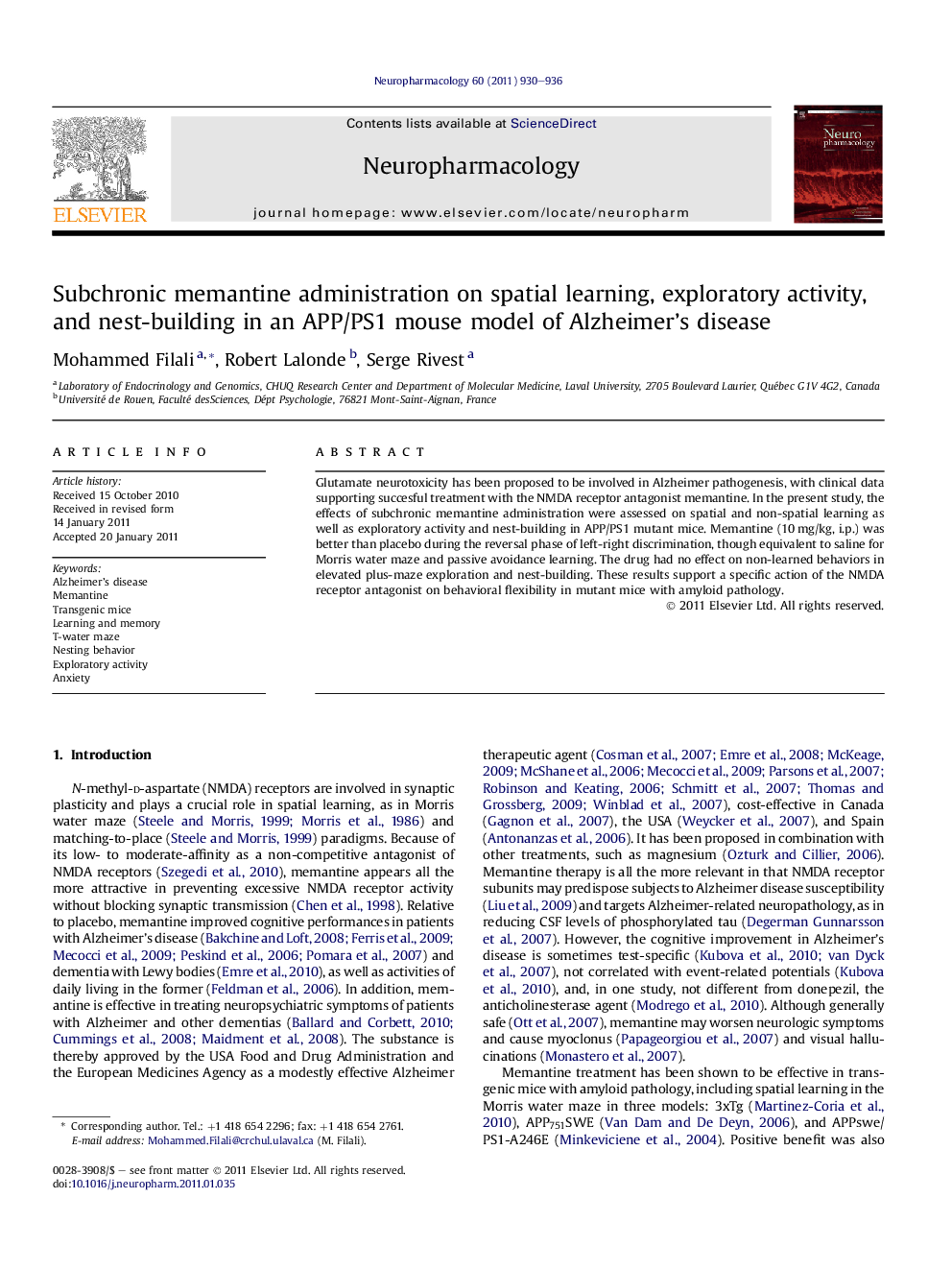| Article ID | Journal | Published Year | Pages | File Type |
|---|---|---|---|---|
| 2493981 | Neuropharmacology | 2011 | 7 Pages |
Glutamate neurotoxicity has been proposed to be involved in Alzheimer pathogenesis, with clinical data supporting succesful treatment with the NMDA receptor antagonist memantine. In the present study, the effects of subchronic memantine administration were assessed on spatial and non-spatial learning as well as exploratory activity and nest-building in APP/PS1 mutant mice. Memantine (10 mg/kg, i.p.) was better than placebo during the reversal phase of left-right discrimination, though equivalent to saline for Morris water maze and passive avoidance learning. The drug had no effect on non-learned behaviors in elevated plus-maze exploration and nest-building. These results support a specific action of the NMDA receptor antagonist on behavioral flexibility in mutant mice with amyloid pathology.
► Memantine improved reversal of spatial learning requiring behavioral flexibility. ► Memantine had no effect on non-learned behaviors in APP/PS1 mutant mice. ► The effects of memantine are sometimes task-specific, as found in Alzheimer patients.
